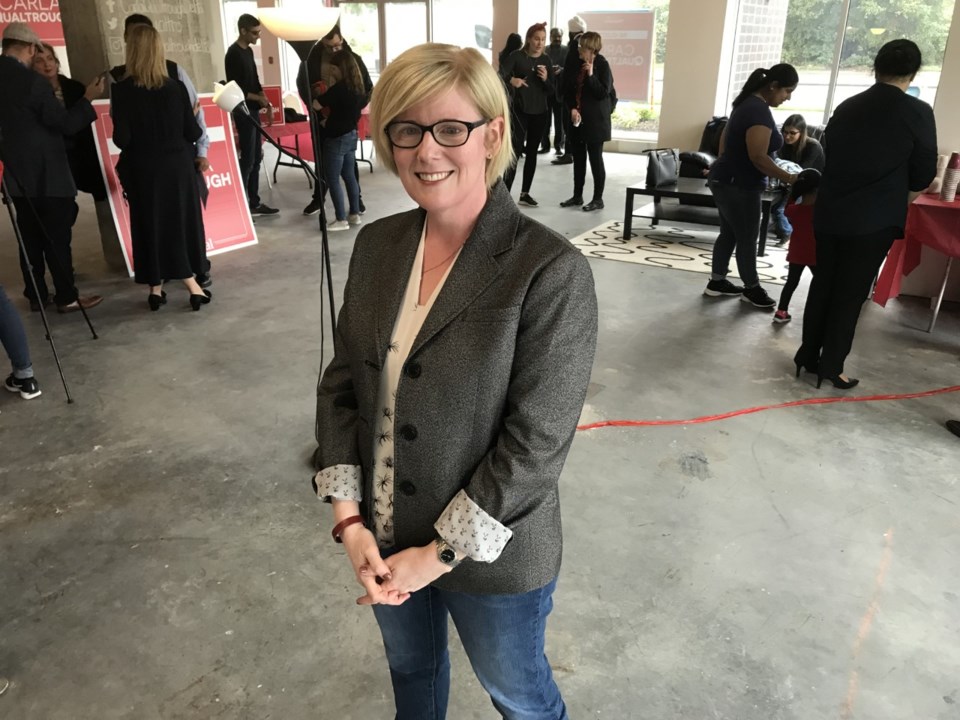It’s great news for voters in the federal electoral riding of Delta.
The Federal Electoral Boundaries Commission for British Columbia released a report Wednesday afternoon with updated recommendations on proposed boundary changes, reversing an earlier recommendation to carve up the Delta riding.
“It feels great to be listened to and going from the three MPs who were supposed to be representing Delta back to one MP is massive. Basically, they heard loud and clear from both sides of the river that the river was a natural boundary and the community of Delta was invested in staying intact,” said an elated Delta MP Carla Qualtrough.
Last year, the commission put forward a proposed electoral map for consideration. The maps and proposed changes were discussed at public hearings in Delta and throughout the province.
The June 23, 2022 hearing at the Coast Tsawwassen Inn saw the highest attendance and number of presentations of any riding in B.C.
Those who spoke made it loud and clear Delta would lose effective representation.
The City of Delta was previously divided with South Delta being part of the Delta-Richmond East riding, while North Delta was attached to Surrey as part of the Newton-North Delta riding.
By the 2015 election, the boundaries were reconfigured to combine both North Delta and South Delta into one Delta riding.
However, Delta was once again facing being divided as a new riding called Delta would have seen Ladner, Tsawwassen and North Delta below 72 Avenue join part of Surrey, extending all the way to King George Highway.
Another part of North Delta would have been lumped into Surrey as part of a Surrey riding, while another area of North Delta and the River House area of Ladner would have joined a newly reconfigured Richmond East.
It would have been part of many changes proposed in response to the significant, but uneven growth in B.C.’s population.
Delta council described the proposal as a “massacring of the lines” which would leave Delta residents in the “extreme minority” if the changes went ahead.
Qualtrough, who was about to submit a MP submission of objection as part of the latest phase in the process, also made a presentation at last year’s hearing, noting the community does not need to be unnecessarily fragmented.
She warned Delta would lose quality of service, outreach and advocacy tailored for the community and that Delta’s priorities would not be the same as the other cities.
She told the Optimist Wednesday that people of all political stripes and levels of government joined to make a powerful statement of opposition.
“It’s an important victory for Delta and shows how we can all come together as community on things that matter to us,” added Qualtrough.
The commission seemed to agree with the points raised.
“Many residents of the municipalities touched by this previous proposal frankly and helpfully questioned it as contrary to historical pattern and community of interest. While the cities of Richmond and Delta have shared representation in the past, this solution was opposed by presenters on both sides of the Fraser River. So too was the proposed change to include all Annacis Island in a Richmond electoral district,” the commission stated in its latest report.
While the commission decided to keep Delta intact, it also recommends adding a small section of Surrey near the area of Scott Road at Highway 10 into the riding.
“On re-examination of the proposal and consideration of the thoughtful and helpful input received from members of the public, the Commission proposes to maintain the natural boundary of the south arm of the Fraser River between Richmond and Delta. As doing so leaves Delta under quota in a field of over-quota electoral districts to the east, the Commission proposes to alter the present boundary by adding territory located in Surrey,” the report noted.
Qualtrough said while Wednesday's news is an important step, the process is ongoing and the commission’s recommendations still require approval.




